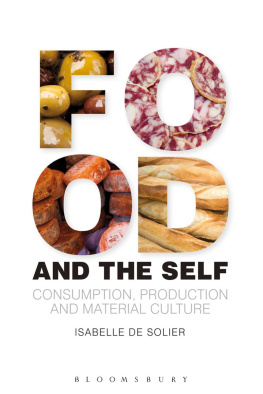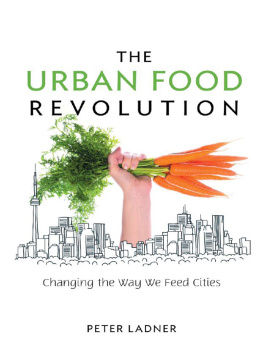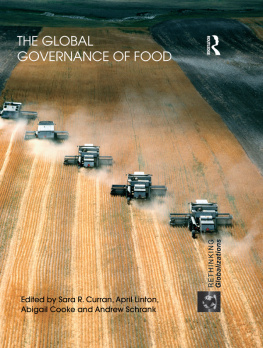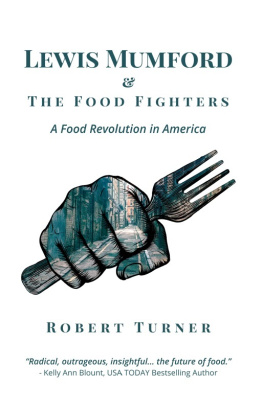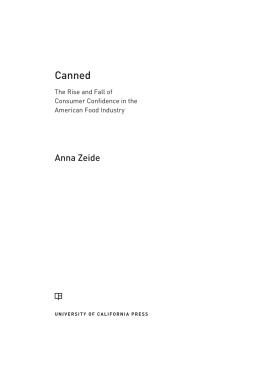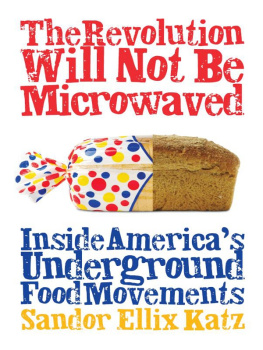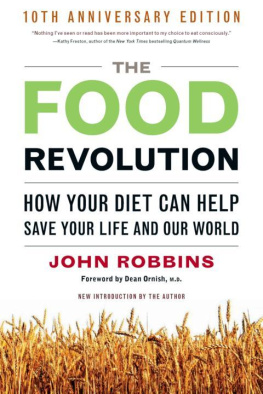
Russias Food Revolution
This book analyzes the food revolution that has occurred in Russia since the late 1980s, documenting the transformation in systems of production, supply, distribution, and consumption. It examines the dominant actors in the food system; explores how the state regulates food; considers changes in patterns of food trade interactions with other states; and discusses how all this and changing habits of consumption have impacted consumers. It contrasts the grim food situation of the 1980s and 1990s with the much better food situation that prevails at present and sets the food revolution in the context of the wider consumer revolution, which has affected fashion, consumer electronics, and other sectors of the economy.
Stephen K. Wegren is Professor of Political Science and Director of International and Area Studies, at Southern Methodist University, Dallas, Texas. He is author or editor of 18 books and more than 160 academic articles and contributions to collected works.
Alexander Nikulin is Director of the Center for Agrarian Studies, Russian Presidential Academy of National Economy and Public Administration, Moscow, Russian Federation.
Irina Trotsuk is Professor of Sociology, Peoples Friendship University of Russia, Moscow, Russian Federation.
Routledge Contemporary Russia and Eastern Europe Series
Civil Society, Social Change, and a New Popular Education in Russia
W. John Morgan, Irina N. Trofimova and Grigori A. Kliucharev
The Russian Economic Grip on Central and Eastern Europe
Edited by Ognian Shentov, Ruslan Stefanov and Martin Vladimirov
Law and Power in Russia
Making sense of quasi-legal practices
Hvard Bkken
Putins Third Term as Russias President, 201218
J. L. Black
Soviet and Post-Soviet Sexualities
Edited by Richard C. M. Mole
De Facto States in Eurasia
Edited by Tom Hoch and Vincenc Kopeek
Czech Democracy in the New Millennium
Edited by Andrew L. Roberts with Stanislav Balk, Michal Pink, Marek Ryb, Peter Sp, Petra Svainov and Petr Voda
Russias Regional Identities
The Power of the Provinces
Edited by Edith W. Clowes, Gisela Erbslh and Ani Kokobobo
Russias Food Revolution
The Transformation of the Food System
Stephen K. Wegren with Alexander Nikulin and Irina Trotsuk
Series URL: www.routledge.com/Routledge-Contemporary-Russia-and-Eastern-Europe-Series/book-series/SE0766
Russias Food Revolution
The Transformation of the Food System
Stephen K. Wegren
with
Alexander Nikulin and Irina Trotsuk
First published 2021
by Routledge
2 Park Square, Milton Park, Abingdon, Oxon OX14 4RN
and by Routledge
52 Vanderbilt Avenue, New York, NY 10017
Routledge is an imprint of the Taylor & Francis Group, an informa business
2021 Stephen K. Wegren
The right of Stephen K. Wegren to be identified as author of this work has been asserted by him in accordance with sections 77 and 78 of the Copyright, Designs, and Patents Act 1988.
All rights reserved. No part of this book may be reprinted or reproduced or utilized in any form or by any electronic, mechanical, or other means, now known or hereafter invented, including photocopying and recording, or in any information storage or retrieval system, without permission in writing from the publishers.
Trademark notice: Product or corporate names may be trademarks or registered trademarks, and are used only for identification and explanation without intent to infringe.
British Library Cataloguing-in-Publication Data
A catalog record for this book is available from the British Library
Library of Congress Cataloging-in-Publication Data
A catalog record has been requested for this book
ISBN: 978-0-367-47424-9 (hbk)
ISBN: 978-1-003-03550-3 (ebk)
Typeset in Times New Roman
by Wearset Ltd, Boldon, Tyne and Wear
For Mila, long may you run
Contents
This book pursues two broad themes. First, the tremendous changes in Russias food system since the Soviet period are not merely reform or a transition: commonly used terms that imply some degree of continuity with the previous system. Instead, there has been a complete transformation of the food system. During the past 40 years Russia has experienced a food revolution. In the 1980s Russian consumers were preoccupied with where to obtain food. In the 1990s Russian consumers were preoccupied with how to afford food. Today, those questions have been replaced with which restaurant to eat in and which cuisine to try. Russian consumers today are more food secure and have more options about how and where to obtain food than at any time in the past 100 years. This book explores, explains, and analyzes Russias revolutions in food supply, food distribution, and food consumption. The second broad theme is that while it is well-known that the state was the central actor in the Soviet food system, what is interesting about the Russian case is that despite the transformation of the food system in terms of actors, institutions, policies, and consumer choices, the state retains residual influence. It no longer dominates the food system and it no longer directly controls food actors, but its presence is embedded in the operation of the food system.
Various institutions and individuals provided the support that helped bring this book to fruition. Alexander Nikulin secured funding from the Rosa Luxemburg Foundation (Moscow) for surveys on attitudes toward food security in 2015 and 2016. The Norwegian Research Council (grant number 243630/H30) provided funding for fieldwork and research during 20152018. Southern Methodist University, Dallas, Texas, provided a semester sabbatical for writing in 2019. I am grateful for their support.
Irina Trotsuk provided research assistance for . Irina was very conscientious in responding to my queries quickly and accurately. I thank both she and Alexander Nikulin for their help. In addition, Darrell Slider pointed me to very useful articles on food culture in Russia, and we enjoyed going to Depot.Moscow together for beers and dinner. Natasha Shagaida shared her work with me on agroholdings, which was most valuable. I also thank two anonymous reviewers for their comments and suggestions for improvement. I remain responsible for errors or misstatements.
Imagine if it were possible to travel back in time to Moscow in 1990. You would find a grim food situation. In 1990, gross food production was not the primary problem, but the food distribution system had broken down and criminal elements were withholding food from cities. Even in the capital, consumers experienced chronic shortages of low-quality food. While no one was starving in the USSR, consumers could not expect to find beef, chicken, pork, or sausage on a regular basis. To ensure at least minimum consumption levels, food rationing was introduced in the winter of 1990 for the first time since World War II. Food coupons that were supposed to ensure access to a minimum supply of food were more times than not worthless because shelves were empty. Advisors to Soviet President Mikhail Gorbachev told him that the country needed to import food and consumer goods to save



